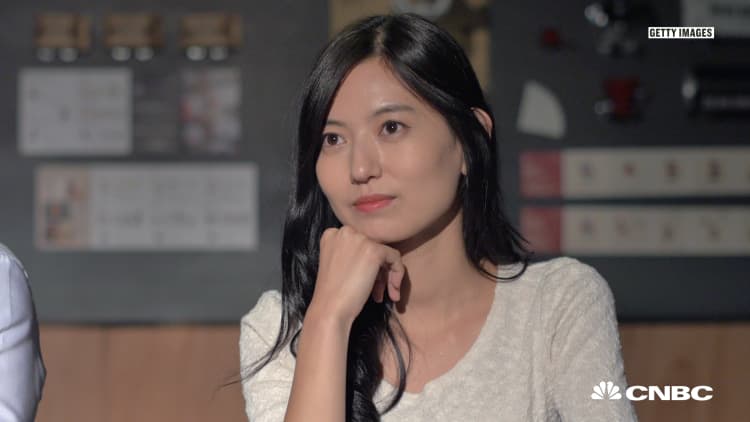Most young employees hope their jobs will provide a sense of meaning. But few know how to find it on their own.
That's according to Simon Sinek, a bestselling author whose 2009 TED Talk on finding your purpose has garnered more than 34 million views.
"I've talked to so many young people and entry-level people in the workplace," Sinek tells CNBC Make It, "and it's really stunning to me how many people are playing their career like the lottery."
"Very few of us can clearly know why we do what we do," he says.
Instead of growing increasingly frustrated in your career, or worse, quitting your job without a plan, Sinek recommends doing an exercise that helps you understand what motivates you.
The exercise, which he describes in his book "Find Your Why," requires you and a trusted friend to have a conversation to figure out what really inspires you.
Here's how it works:
1. Find someone who's also interested in figuring out their career
Seek out a friend or someone you're comfortable discussing personal stories with. Interestingly enough, Sinek says this shouldn't be someone with whom you are extremely close, like your significant other.
"The best partners will be hearing your stories for the first time," he writes, explaining that you're looking for an objective person.
2. Write down a list of important life stories
Before you meet with your conversation partner, jot down a list of five to 10 personal stories. Some of them should illustrate the "peaks" of your life, or times when you felt incredibly happy and fulfilled. Others should explore the "valleys," or times when you felt lost.
If you're having trouble recalling stories, Sinek suggests answering a few prompt questions, such as, "At school, what was an experience you loved?" or "What happened that changed the way you think about the world and your role in it?"
Once you have your list of stories, choose three to share that you feel have had the most impact on your life.
3. Share your stories and identify themes you hear
Take turns sharing your three stories. When the other person is talking, pay attention, take notes and ask follow-up questions such as, "How did that make you feel?" or "What was the lesson from that experience that you still carry with you today?"
As they respond, jot down themes you notice. These could be "starting new projects" or "inspiring others" or "fighting injustice."
Share the list of themes you heard with the other person.
4. Define what motivates you
After your conversation partner identifies the themes they heard in the stories you shared, try writing in one sentence what you want to do in your life and career.
Sinek says this your "Why statement," and it should take the following format: "To ______ so that ______."
"The first blank represents the contribution you make to the lives of others," he writes. "The second blank represents the impact of your contribution."
For example, you might write, "To help others deal with their financial problems so that they can live happier lives."

Your statement of purpose may change over time, but in the present, it can help you in numerous ways, from deciding what job to take to figuring out how to make your current job more enjoyable.
"What I learned is all those people who know why they do what they do," he says, "have an unbalanced amount of success."
"They also have an unbalanced amount of fulfillment and joy and inspiration, in their careers and in their lives."
Like this story? Like CNBC Make It on Facebook.
Check out Your career is more like an iPhone than a ladder, says ex-Google career coach




